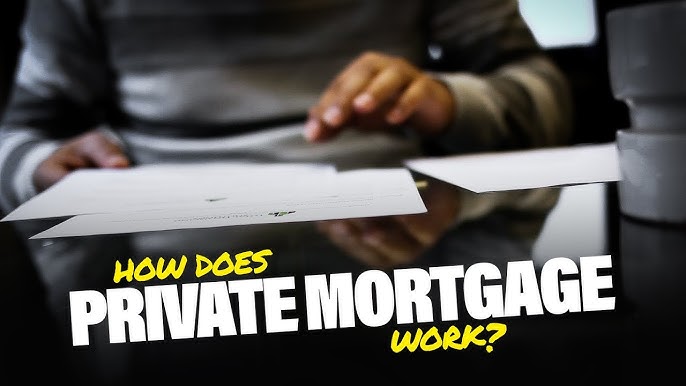Just how It Functions: A Comprehensive Guide to Mortgage Lending for First-Time Buyers
Steering the globe of mortgage lending can be daunting for newbie purchasers. Comprehending the essential elements like principal, rate of interest, and down repayments is crucial. In addition, identifying the various sorts of home loan and the application procedure can considerably impact one's experience. By exploring essential factors that influence rates of interest, purchasers may uncover valuable understandings. What else should they think about before making such a substantial economic dedication?
Comprehending Mortgage Basics
When new customers go into the domain of homeownership, recognizing mortgage fundamentals becomes critical for making notified decisions. A home mortgage is essentially a finance protected by the residential or commercial property being purchased, enabling individuals to get a home without paying the full rate upfront. Buyers have to understand key elements, consisting of principal, rate of interest, tax obligations, and insurance coverage, frequently summed up as PITI. The principal is the amount obtained, while passion is the expense of loaning that amount, revealed as a percent. Taxes and insurance policy are additional expenses that can markedly influence monthly repayments. Customers ought to likewise take into consideration the funding term, typically 15 or thirty years, which influences payment quantities and total passion paid. Understanding credit rating is vital, as they affect loan eligibility and rates of interest. Realizing these basic concepts empowers novice purchasers to navigate the mortgage landscape confidently and make options that straighten with their monetary goals.
Kinds Of Mortgage Loan
When taking into consideration mortgage alternatives, new customers often experience two primary types: fixed-rate and variable-rate mortgages. Fixed-rate mortgages provide stability with consistent payments over the car loan's term, while adjustable-rate home loans can supply lower preliminary prices that may rise and fall gradually. Comprehending these differences is vital for making a notified decision.
Fixed-Rate Mortgages
Fixed-rate mortgages give security and predictability for newbie homebuyers maneuvering the intricacies of home funding. With a fixed-rate mortgage, the rate of interest continues to be consistent throughout the financing term, commonly varying from 15 to 30 years. This consistent price allows buyers to intend their budget plans efficiently, recognizing that their month-to-month repayments will not fluctuate. New purchasers gain from this framework as it gets rid of uncertainty in long-lasting monetary commitments. In addition, fixed-rate home loans frequently come with reduced first prices compared to adjustable-rate options, making them an appealing option for those looking to develop home equity over time. Generally, fixed-rate home loans use an uncomplicated course to homeownership, perfect for individuals looking for long-lasting monetary security.
Adjustable-Rate Mortgages
For newbie property buyers looking for adaptability, adjustable-rate mortgages (ARMs) can give an attractive option to fixed-rate finances. ARMs generally offer reduced first rate of interest, making regular monthly settlements much more cost effective in the very early years. Nevertheless, these prices change after a first set duration, which can bring about increased repayments gradually. Customers must recognize the index and margin that determine future rate modifications. Frequently, ARMs have adjustment periods of one, three, or five years, with regular caps to limit exactly how much rates can enhance at each modification. While ARMs can be helpful for those preparing to offer or refinance prior to the price readjusts, they likewise bring dangers if market conditions change considerably. Extensive research study is vital for informed decision-making.
The Mortgage Application Process

Trick Variables Affecting Rate Of Interest

Down Payments and Closing Costs
Understanding deposits and shutting costs is vital for newbie buyers, as these costs substantially impact the overall price of a home mortgage. A down repayment is the preliminary amount paid in the direction of the home's purchase cost, normally expressed as a percentage. It can range from as low as 3% to 20% or more, depending on the car loan type and lender requirements. A larger down payment can reduce monthly mortgage settlements and remove exclusive mortgage insurance policy (PMI), which shields lending institutions in instance of default.Closing prices, on the various other hand, include different charges incurred throughout the home-buying procedure. These may include lending origination costs, assessment fees, title insurance policy, and lawyer charges, generally completing 2% to 5% click to read of the home's purchase cost. Novice purchasers should allocate both down payments and closing prices to assure they can protect their mortgage and effectively browse the home-buying process.
Tips for First-Time Homebuyers
What vital tips can new buyers comply with to navigate the typically difficult process of acquiring a home? Initially, establishing a practical spending plan is crucial. Buyers ought to assess their financial situation, consisting of revenue, expenditures, and possible mortgage payments. Next, getting pre-approval for a home mortgage can offer clarity on what one can manage and reinforce their placement when making an offer.Researching neighborhoods is just as essential; buyers must think about factors such as services, colleges, and future advancements. Additionally, it is advisable to collaborate with a certified realty agent who can supply important insights and support throughout the buying process.Home evaluations need to not be overlooked, as they can uncover concealed concerns that might influence long-lasting fulfillment. Customers ought to stay patient and adaptable, recognizing that locating the right home may take time. By adhering to these pointers, new buyers can approach the market with self-confidence and understanding.
Frequently Asked Concerns
What Documents Are Needed for Mortgage Pre-Approval?
For mortgage pre-approval, individuals usually need to offer income confirmation, work history, credit history reports, tax returns, financial institution declarations, and details of any debts (Private Mortgage Lenders Savannah GA). These documents aid lending institutions assess financial capability and determine funding eligibility
Can I Get a Home Mortgage With Bad Credit?

Many lending institutions take into consideration applicants with negative credit score, though terms may vary. Higher rates of interest or bigger down payments could be called for. Discovering choices with specialized loan providers or federal government programs can likewise enhance possibilities for authorization.
The length of time Does the Mortgage Approval Process Take?
The mortgage authorization procedure commonly takes in between 30 to 45 days. Variables influencing this timeline consist of the loan provider's performance, the debtor's economic documentation, and the complexity of the car loan application. Hold-ups may happen due to additional requirements.
What Happens if I Miss a Home Loan Payment?
If a home loan payment is missed, late charges might be sustained, and credit rating can endure. Extended non-payment might bring about repossession you can find out more process, motivating the lender to recover the residential or commercial property after a collection of cautions.
Can I Re-finance My Mortgage Later On?
Re-financing a mortgage later is typically feasible, allowing homeowners to change their finance terms, rates of interest, or regular monthly settlements. Eligibility depends on credit rating scores, current market conditions, and the existing mortgage's terms.